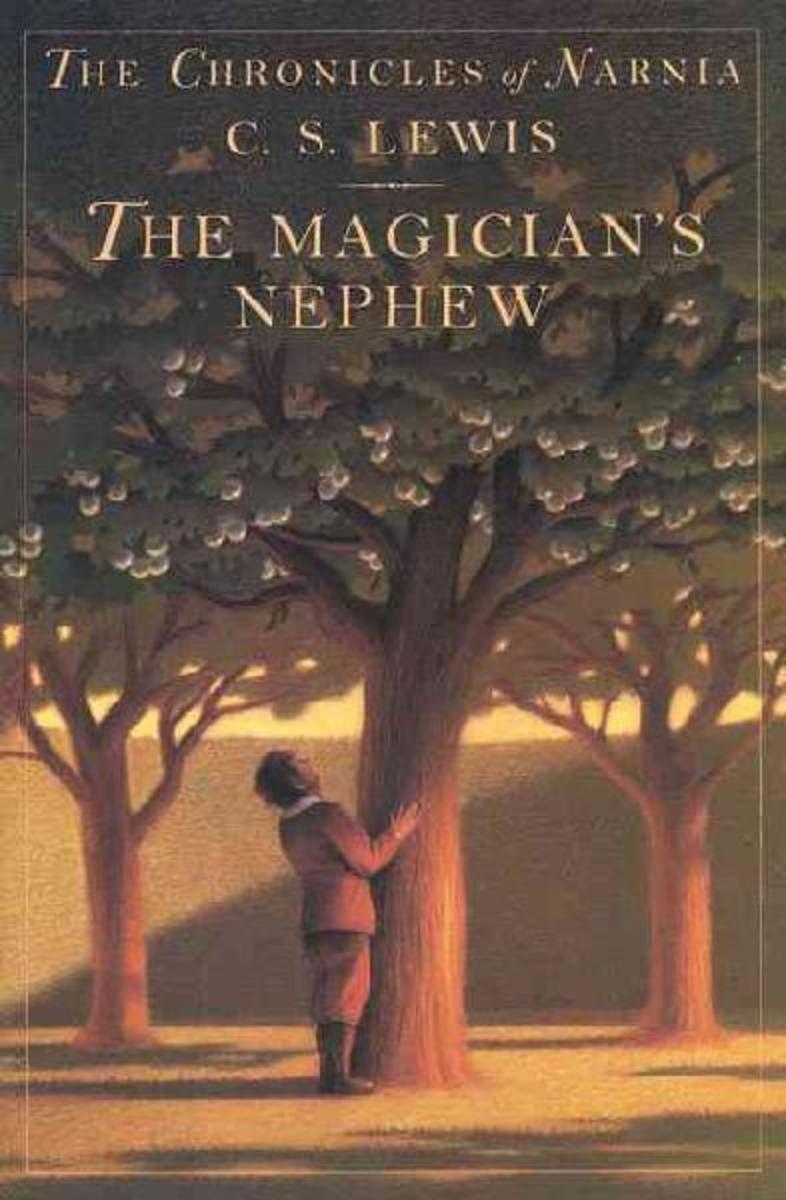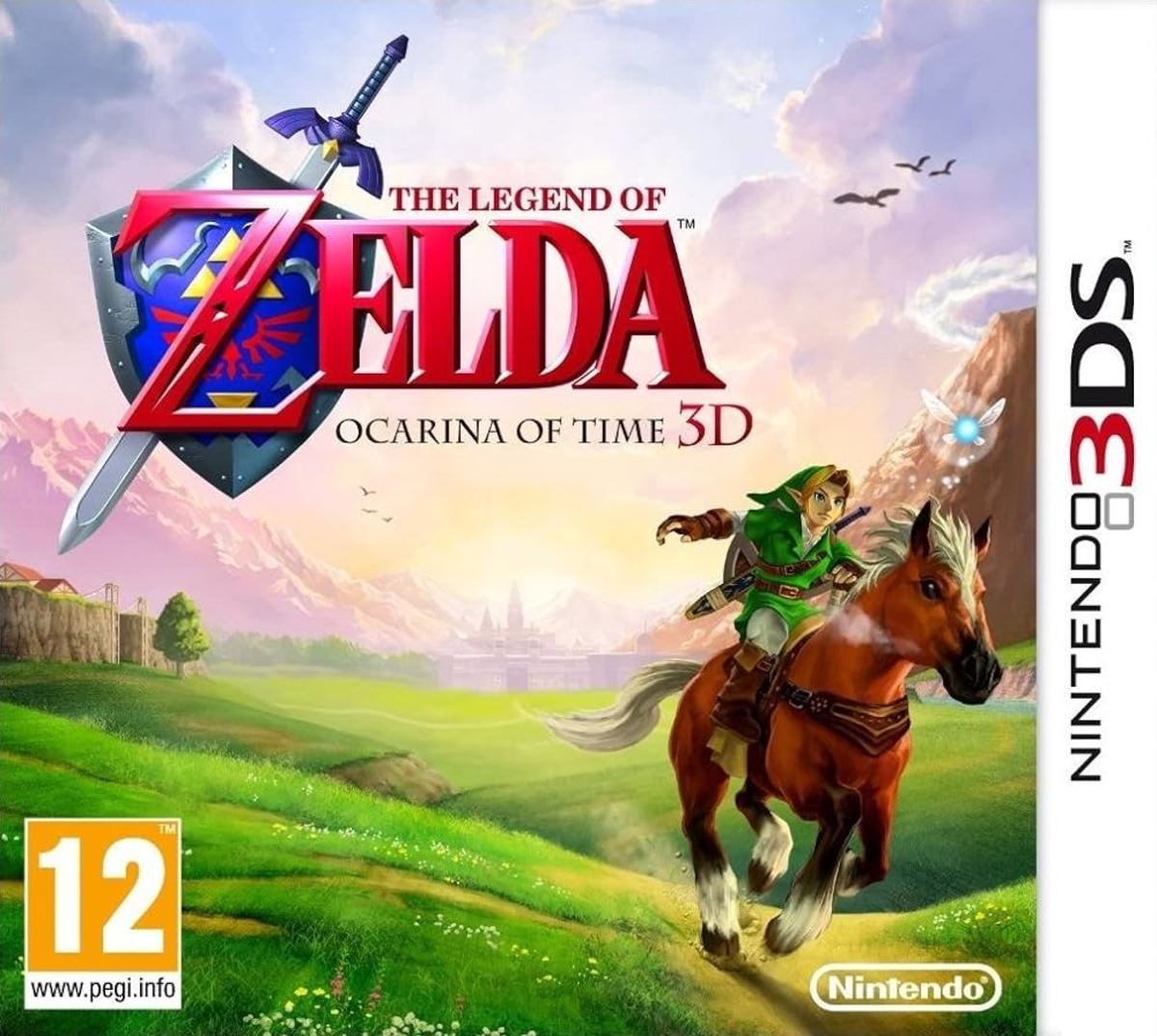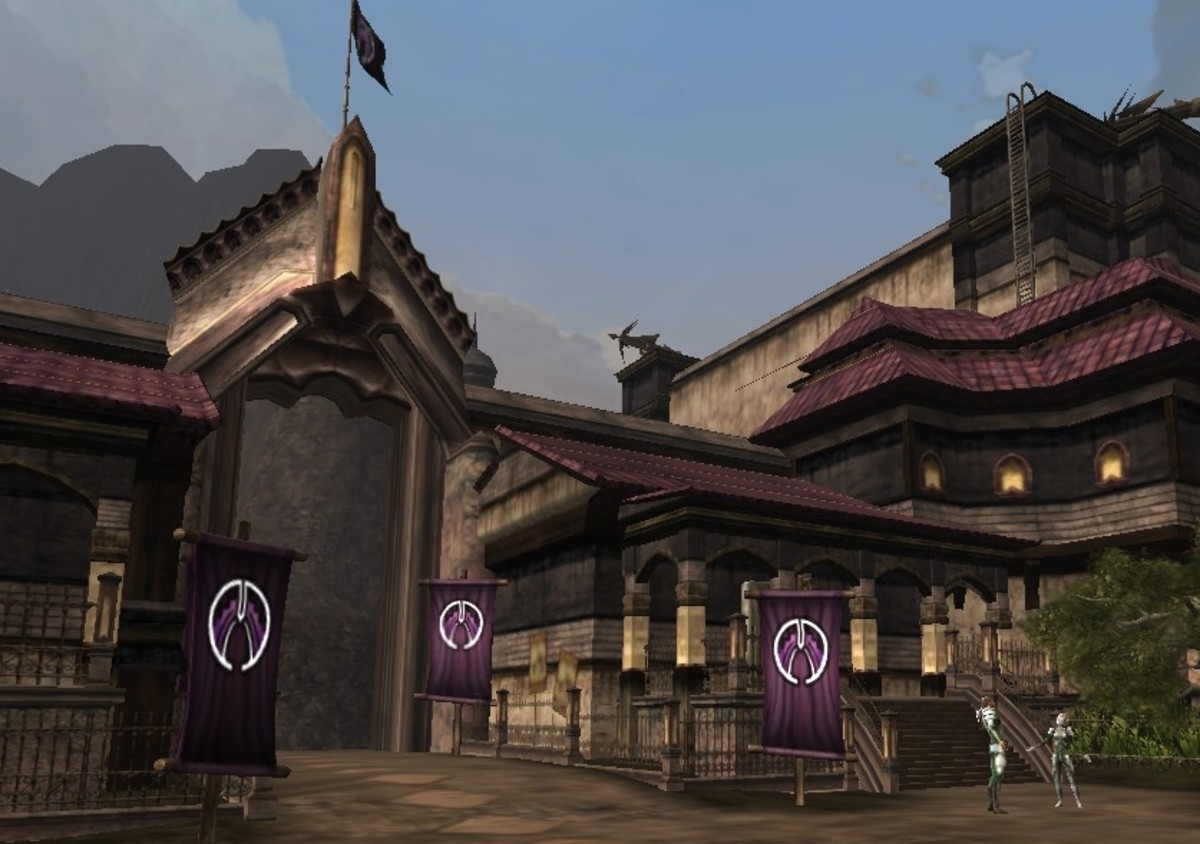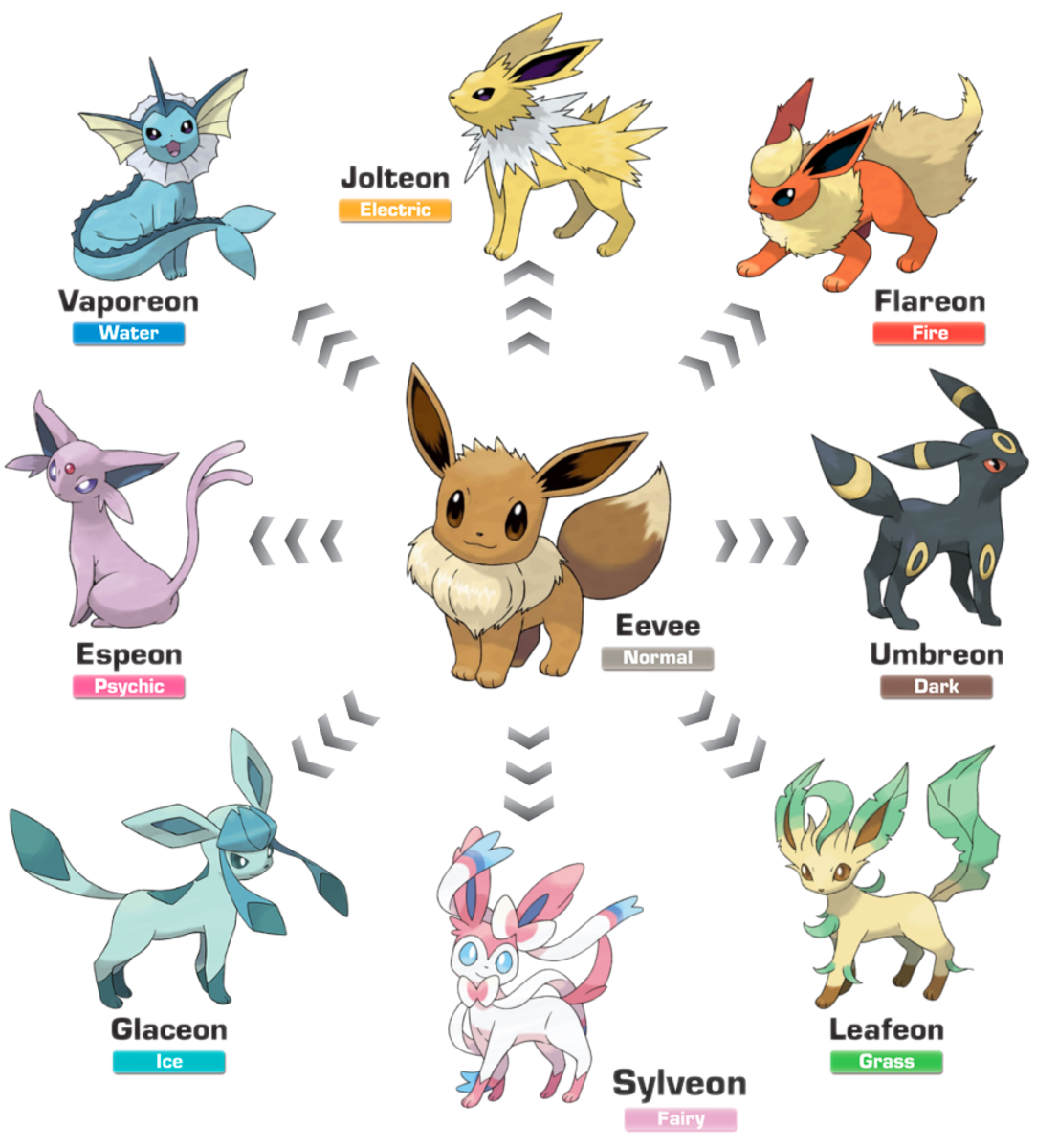Save Anything: investigating save mechanics
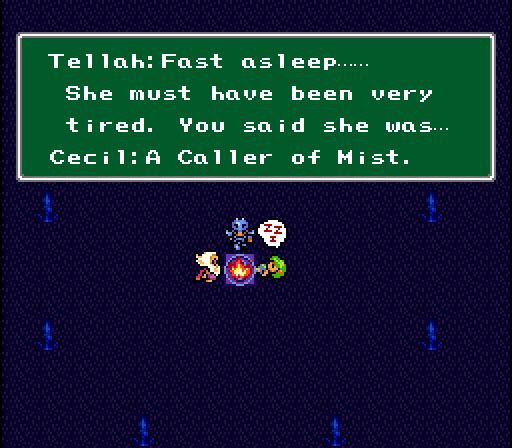
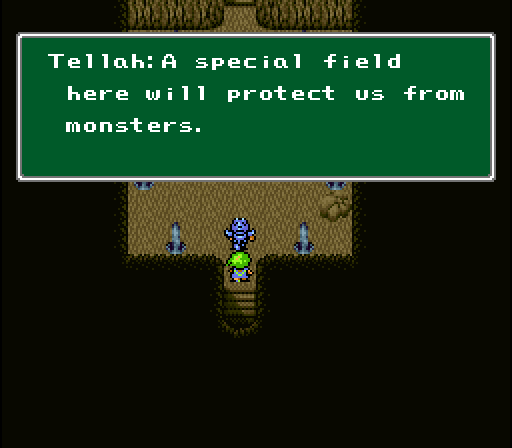
In a recent replay of Crono Trigger I encountered a simple game mechanic that seems to have lost its presence in modern design: Save Spots. Save Spots, or Save Points, were not only designated places that allowed the player a place to save game progress, but they also, eventually, allowed the player to restore and lost health and magic (usually requiring an item). Aside from Save Spots representing just Bookmarks in games, it created a short term goal for the player. These set points introduced drama and tension into mundane fights since it meant the player must manage resources and stay alive until finding the next save point. In this sense, the player needed to earn their way to save their game. Dying meant a loss of progress and a struggle not to fail the quest.
But as technology grew, the mechanics to save your game anywhere and the game to save for you came common and standard. These things, I assume, were developed to avoid frustrating and lengthy replays of the same area; to make it easier for the player to progress through the game and enhance the experience without the repetitive and agitating replay just because the player lost a fight or fell down a pit. Now whenever I get through a harsh fight or tricky environment, I can merely save and not worry about having to get through it again. I can progress without worrying about some random weak creature or enemy (like a goblin) getting the better of my weakened state, killing my character, and forcing me to replay that difficult scenario all over again. Autosaves and save-anywhere create a safety net, one that ensures the player will not lose too much progress no matter what happens and avoid game quitting frustration. But the comfort of knowing that it not only takes away the tension and strain of getting from checkpoint to checkpoint can easily lead to metagame abuse: If I fail a persuasion check I just reload the autosave from when I entered the building and replay the conversation until I succeed the attempt, to make sure I get it and avoid the alternative of failing it (like a portion of the quest) so I can enjoy the best of all possible worlds playthrough even on my first try. Because I am sure that’s what Boromir thought about as he fought all the Uruk-hai. Imagine how easy the original Resident Evil would be if you could save, or the game saved for you, before entering any and every room. The knowledge and safety of the reload undercuts fear of the dying, rendering death as meaningless. Skyrim and Witcher 2 even take it a step further by providing a backlog of the game’s last three autosaves, just in case. Even the challenge of the hardest difficulties in any game poses no real threat if you can save every five minutes (though Witcher 2's hardest difficulty setting deletes itself upon the player's death).
In a way, save-anywhere and autosave create a gap between the player and the character. It can spoil players with a safety net which can negate the difficulty, counteract mechanics of the game, or nullify consequences of decisions. It points out the artificiality of the game world and means the player does not experience the journey the same way the character in the game does. The player does not fear death or failure if all it means is a slight set back and a load screen. This kind of crack between character and game is becoming more prevalent as save mechanics are considered as disjointed from the entire game experience. Most implementations of autosave and save-anywhere go beyond the mere bookmark functionality for games that the save spots once were. However, not every game employs these two saving conventions in the most standard or obvious manner, and instead influence the game or player in creative ways.
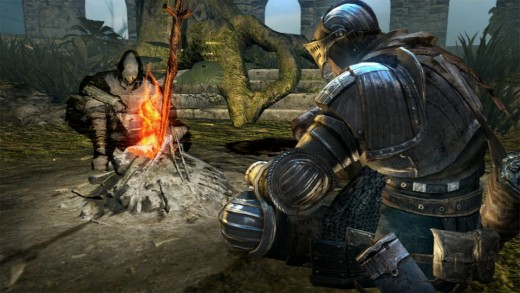
Impact on Exploration
Demon’s Souls and Dark Souls add to the games difficulty by making the game autosave almost everything the player does, but the game does not grant the player access to the save data. The game’s usage of respawn points only further the sheer numerical difficulty of enemy damage output since it means that the player cannot kill one enemy, save, and know that enemy will no longer pose a threat. Dark Souls ensures that not only does the player’s death respawn all enemies but every usage of the bonfire brings back all enemies. The respawn points coupled with the sheer difficulty of every monster in the game strains exploration since dying means enemies come back and all progress to the next bonfire is lost. The player cannot overcome the ever-present and returning threat by reloading an old save file. Nor can the player run about carelessly, paying no attention to the number of healing Estus flasks and expect to make progress. The player earns their way to each of the bonfires in Dark Souls just so they don’t have to struggle all the way to that point again and save/respawn points are rewards from overcoming the preceding challenges.
In a large way, tension in Dark Souls comes from the same place as tension in the first Legend of Zelda, not dying so you can avoid replaying the same harsh challenges. This is as close to real death it can get in videogames (withholding things such as permdeath), the fear of losing and dying means something if you cannot quickly jump back to the spot of where you died. Challenge, in this sense, is as real to you as it is your character; bad things are going to happen. An example can be the first Resident Evil (or any of the ones that preceded 4). You leave one of the safe rooms and explore since you have ammo and healing herbs. You encounter a zombie shortly afterwards. One zombie is no problem; you just left the safe room and restocked your supplies. You explore more, find a new key. A room later, you fight another Zombie. You still have a fair amount of ammo and herbs left and continue to explore. After three or four such encounters with only one zombie, the results stack against you. Each zombie’s difficulty is compounded by each one before it, almost making the difficulty similar to that of the Fibonacci Sequence. After even just ten zombies one at a time, the fear of losing all the acquired progress really settles in. You need to start thinking of getting more ammo, more herbs, possible even just saving your game since you killed those zombies and finally found the shield key. But here’s where the risk of exploration comes in; do you risk just running back to your last safe room, not knowing if there’s more zombies, just to make sure you don’t lose the progress you’ve made since your last save? Or do you forge on ahead, hoping that you find a new safe room? In short, you can lose the progress gained since your last save. Autosaves, however, mean that more than likely you’ll only lose a few minutes. Anytime something remotely threatening appears, the player can save their progress and be unconcerned about the struggle to survive the hazard. Think about any time you died in Dragon Age, Kingdoms of Amalur: Reckoning, Rage, and Skyrim. Did you ever place that much emphasis not dying to make sure you didn’t lose so much progress?
The combination of resource control and limited saving meant that exploration and dungeon crawls possessed a certain anxiety that didn’t necessarily mean scarred like that of a horror survival game. But with save anywhere and autosave mechanics, exploration in games has changed. Skyrim’s idea of exploration is more based on wonder and curiosity than that of tension and risk (though, one could argue that Fallout 3 and its limit on ammo and healing could try to make up for that). After many hours in Skyrim, I found that exploring places did lose some luster, and subsequent playthroughs, despite completely different characters, became somewhat rote. But replays of Vagrant Story, Crono Trigger or even a Mario game still feel fresh and vibrant despite my foreknowledge. Skyrim is meant to awe the player and invite them to explore. But sometimes I cannot help but wonder if they could make exploring a little less friendly so the wonder feels more rewarding (and I’ve tried. I recently played through it on the highest difficulty and only saved when I slept. I still didn’t find it too challenging. But this is not to say I don’t enjoy Skyrim or thinks it is a good game, because I honestly do and have played it for over two-hundred hours across four different characters. I am just exploring how save design impacts on exploration and game experience).
Rewriting the story and facing consequences
On the other hand, where autosaves can often allow the player to rewrite their character’s fate and fortune, an autosave can also ensure that a player cannot rewrite reality, as is the case with games L.A. Noire and Dragon’s Dogma. Like Demon’s Souls, L.A. Noire also removes saving from the player’s control and the game saves your progress as you find new clues or finish interviews. This means that if the player asks the wrong questions and fails the interrogation, the game saves. This implementation of autosave prevents the player from simply reloading the game to replay the interview and receive more favorable outcome. Or, in other words, it prevents the player from cheating the game to acquire the best outcome. By removing the possibility of this instant replay, the game ensures that the player must accept their mistakes as part of the continuity of the game, both in its world and story. While this manner of game saving means that there is no lost progress, it also means that the there is only a forward movement. In a way, this is a way of the game saying “you and the character are one in the same.” This allows for situation like Boromir, where failure can be redeemed through valiant efforts elsewhere. Sadly, one of the shortcomings of L.A. Noire is that you can charge the wrong person in every case and it has no real impact on the game.
Dragon’s Dogma makes use of a similar save system. The game allows only one character per profile and each character has two different types of save slots: one for whenever you stay at an Inn and a second that is controlled by both player and the autosave. Here the autosave ensures that the player cannot redo a conversation to get a different reward or outcome to a quest since the save data they have access to is also where the game autosaves. Though, if the player is truly desperate, they can chose to reload the Inn save and force themselves to replay everything they’d done all over again since the last time they stayed at the inn. I did it once. It was more tedious and boring than replaying the same portion of a dungeon over and over again in Vagrant Story because a boss could one hit me. In Dragon’s Dogma I had won but wasn’t happy with how I won, so I wanted to make it better. In Vagrant Story, as agitating as it was to fight the same two soldiers time and time again just to get killed by the Lich again, at least there was an unknown, still a challenge. How could I be disappointed in completing the quest and reaping the rewards?
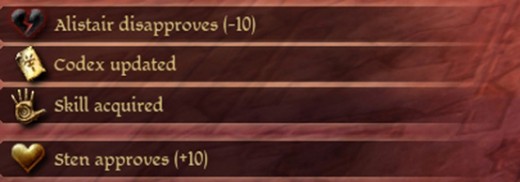
As odd as it might seem, I really enjoy this lack of save control mechanic, despite everything I just said about it how can undermine or cheapen exploration (though, the saving mechanics must be done to fit the game). In a way, the game autosaving everything the player does keeps the player honest about what they do and how they play. I find it more realistic and immersive since it forces the player to face and accept mistakes and failures, instead of allowing us to pretend like they didn’t happen with a magical reload, redo, and rewrite. I get caught stealing in Amalur and don’t want to waste my experience sitting in the prison so I just reload the game. Things don’t turn out that way in real life, so why should I really be able to exert that kind of power over my character’s life? Because it’s a game? Isn’t that a disservice to the character you’re playing? Isn’t a disservice to yourself?
I remember I failed an escort quest early in Dragon’s Dogma. Basically I failed the quest because I did not know where the destination was and how to get there. I spent hours wandering in the woods and along the mountains looking for a direct path to the destination, fighting monsters nonstop and quickly loosing resources. Eventually, my charge died in a fight against some bandits. I got mad, and immediately hit the “load last save” option only to find myself standing in the same spot only moments after I failed quest. Then I got even angrier at how the game could just let me fail a quest and not let me do anything to change it. The game denied me perfection and I wasn’t happy. I shut the system off and walked away from the game.
It took me a while to realize the game shouldn’t be doing me any favors just because I was playing a game. I didn’t know where it was I was supposed to go, that was my fault. My character failed the quest because I failed the quest. The game didn’t use any cheap tricks on me. The blame fell on me for thinking I am going to win every challenge since I was the hero of the game. I didn’t know where I was going and I didn’t expect the journey to be as perilous as it turned out. I should have failed the quest, I did, and the game kept go on knowing that. I made a mistake and it cost me experience, money, a good shield as a reward, and some dignity. It was a loss for my character, but the game did not end. My character had to move forward with other quests and goals. What kind of hero would give up after one failure? One failed quest did not mean much in the game world, but it meant something to me. It meant that my mistakes were permanent and there was no way around it.
This lack of permanency, in my opinion, gets in the way of certain decision based games, like Dragon Age and Witcher. With how often Dragon Age autosaves, it is easy to make a decision, realize that my choice didn’t sit well with Aveline or Sten, so I could load an old autosave to replay that conversation a different way to keep my friendship with them. This gets in the way of role-playing, which is a major point in the game. It surprises me that Witcher 2, with its brutality, does not make decisions as permanent (admittedly, decisions in Witcher games rarely reveal their results until much later, which is nice). Then again, the game’s difficult learning curve coupled with a harsh saving mechanic would turn even more people away from the game. And that is where the point seems to lay, the saving mechanic need to be considered as part of the game experience, not just as some disjointed part of the game. Bioshock has the vita-chambers for constant and instant respawn, but expended ammo and items remain used. With all the interesting innovations that are made and introduced to enhance the immersion and gaming experience in general, such as lighting effects or better animations, it is strange that few games actually seem to tinker with how to save the game. Demon’s Souls did it as part of a way to increase difficulty. L.A. Noire did it to reflect the player’s investigative skills, or lack of them. Even that ZombiU seems to be pushing the idea of how saving works by not allowing it and every death results in becoming a new character. These kinds of changes can help games standout from the masses and become recognized for being something different.

